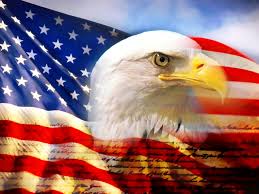 Many of us Americans will not fail to attend the independence day, observed with parades and many other activities all over the states. But how many sit down to ask what really happened on this day. Cerebrations of independence in America are tied to the day the founding father declared independence of all states in America from the British rule. Declaration of independence was not done by the 50 states as they are know today but by 13 British colonies that were existing at the time. The colonies that were present in declaration of independence and the subsequent signing of the freedom document are listed at the essayWritingTips.org as :
Many of us Americans will not fail to attend the independence day, observed with parades and many other activities all over the states. But how many sit down to ask what really happened on this day. Cerebrations of independence in America are tied to the day the founding father declared independence of all states in America from the British rule. Declaration of independence was not done by the 50 states as they are know today but by 13 British colonies that were existing at the time. The colonies that were present in declaration of independence and the subsequent signing of the freedom document are listed at the essayWritingTips.org as :
-
Pennsylvania
-
New Hampshire
-
Rhodes island
-
south Carolina
-
Maryland
-
Connecticut
-
North Carolina
-
Delaware
-
Virginia
-
Georgia
-
New York
-
New Jersey
-
Massachusetts
visit the essayWritingTips.org, a website that offers free American history papers for information on the people who represented these colonies in signing the declaration of independence.
During the second half of the 18th century, more conflicts between the British government and the colonist grew more and more. The first people who intended to liberate the colonies were interested in stopping the British government from further taxation of colonies. They formed the stamp act congress in 1765 and later on first continental congress in 1774. This were unification of states with aims of compromising with the British government on ways of colonies taxation. These were conservative people from different colonies who did not view independence as the first solution instead believed they could reconcile with the crown and seek redress.
As the first continental congress was in the progress of addressing the grievances of the colonists, discontentment and tensions between the colonist and the British government kept growing. The slow pace at which the congress and the British government were addressing the issues brought in feeling of desperations. Flareups in Concord and the battle of Lexington were basic reflections of the colonist feelings. This flareups and others were to become the revolutionary wars, as colonists decided to fight for their independence. The Boston tea party was the most glaring colonist indignation towards the British rule. In response to these the British rule declared the intolerable acts. This did not kill the resolve of the colonist in attaining the independence. With the failure of the first congress , the second congress was created with George Washington appointed as the head.
The declaration of independence was not done easily as the colonies with the second continental congress had suggested that those congress men representing north Carolina and Virginia declare independence first. There were some contentions and a committee of prominent people was made. These were:
-
john Adams who was from Massachusetts as a congress delegate
-
Thomas Jefferson who was from Virginia as a congress delegate
-
Robert Livingstone was from new York as a congress delegate
-
Robert Sherman was from Connecticut as a congress delegate
these group decided to meet on 11th June and after the meeting Jefferson was appointed by the group to write the declaration of independence document. The first written declaration of Independence document had to be reviewed before it could be sent to the congress. The remaining members of the committee revised it, but these was not the only revised edition of the declaration of independence document. A document that had gone several revisions was adopted and signed on 4th July 1776 ; the day of independence for all of us in America.
Latest from Business Writing Services
Leave a comment
Make sure you enter all the required information, indicated by an asterisk (*). HTML code is not allowed.